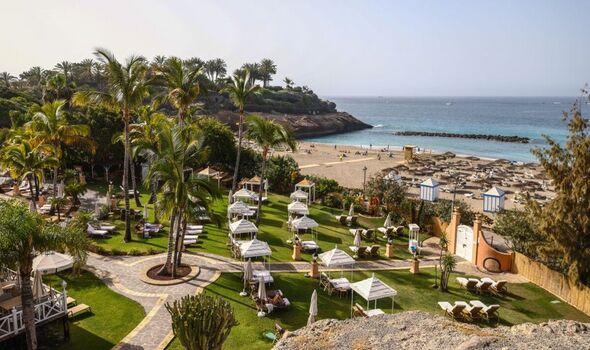Authorities in Tenerife will impose higher water rates on hotels and holiday accommodation, as they battle severe drought conditions.
Officials are prioritising water supplies to residents and farmers over tourists in a move likely to provoke anger from businesses who rely on tourism.
Tenerife’s government declared a drought emergency at the beginning of March after one of the driest winters on record.
Experts say the island is facing months and possibly years of critical water scarcity.
Despite being one of the greener Canary Islands, it has suffered a severe lack of rain in what should be its wetter winter months – especially in northern areas.
In recent years, rainfall has also decreased by between 15 and 40 percent.
At the same time, water evaporation has increased by between 10 and 25 percent in the island’s agricultural midlands due to higher temperatures.
This January saw average temperatures of 20.9C making it the hottest weather islanders had seen in 60 years.
The extreme conditions have forced the government to introduce 75 measures designed to mitigate the effects of the drought and better manage scarce resources.
As part of those measures, hotels and holiday accommodation owners will have to pay more for their water supplies – extra costs that will be passed on to holidaymakers.
Tenerife’s President Rosa Dávila, said: “It cannot be in this situation that golf courses pay the same price for water as farmers and livestock breeders.”
“We are doing this to prevent water supply problems over the next four years,” she added.
“This emergency declaration includes various measures: substantial economic investment, improvements in infrastructure, and a roadmap prioritising services for the population and the primary sector.”
The measures will be introduced for an initial 180 day period, but can be prolonged for a further six months.
Blanca Pérez, the Minister of Natural Environment, said tourism accounted for some 10 percent of water consumption.
“We must make an effort to ensure that our main economic industry has the water it needs, but pays the appropriate price,” she said.
